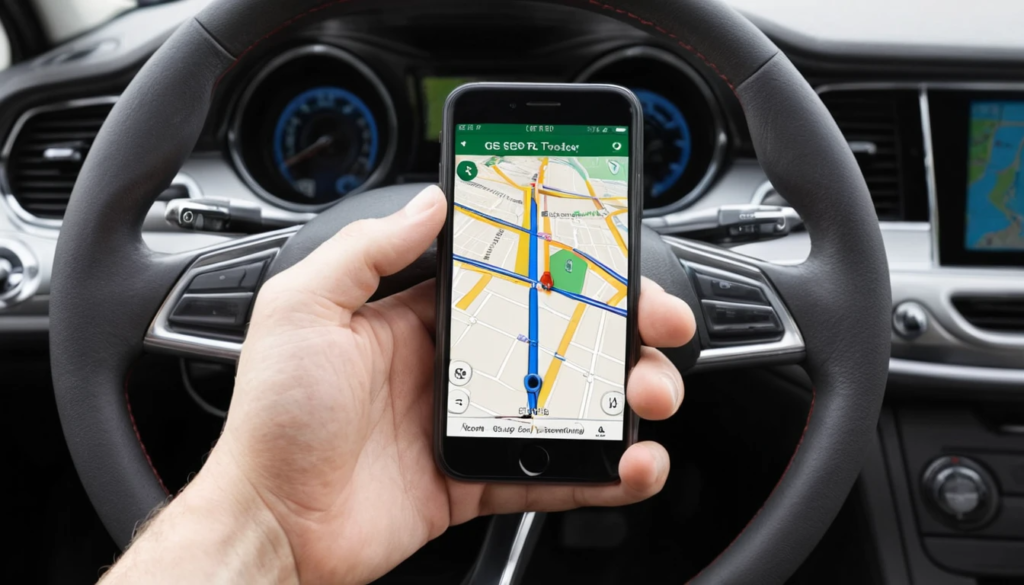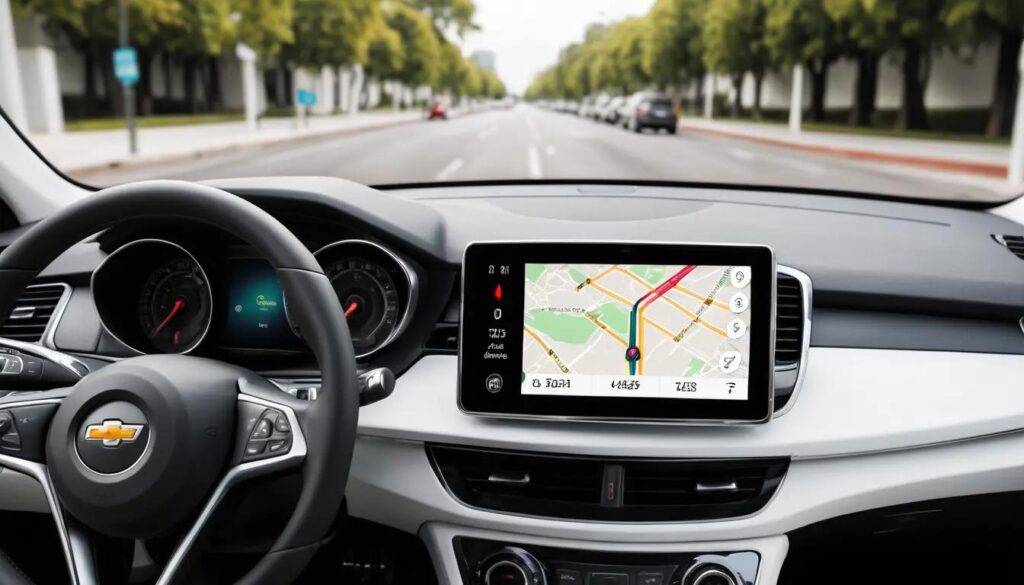Introduction:
Ensuring car security has never been more critical in today’s fast-paced and unpredictable environment. With rising incidents of vehicle thefts and accidents, safeguarding your car is a top priority for every owner. One of the most effective measures to enhance vehicle security is installing a GPS tracker. A GPS (Global Positioning System) tracker is a sophisticated device that offers real-time location tracking, allowing you to keep an eye on your car’s movements at all times. In this article, we’ll delve into the various benefits of having a GPS tracker in your car, including theft protection, better driving habits, and added convenience. If you’re contemplating whether to invest in this technology, this guide will provide valuable insights into its advantages and how it can make your driving experience safer and more efficient.
Table of Contents

What is a GPS Tracker?
A GPS tracker is a device that uses satellite signals to determine the location of your car. Once installed in your vehicle, it continuously tracks the car’s location and transmits the data to your mobile device or computer. This information can be accessed in real-time, allowing you to keep an eye on your vehicle’s movements. GPS trackers also offer other features such as geofencing, speed monitoring, and more, making them versatile tools for enhancing car security.
Key Benefits of Installing a GPS Tracker in Your Car
- Enhanced Vehicle Security: One of the primary reasons to install a GPS tracker is to enhance your vehicle’s security. With car theft on the rise, having a GPS tracker can significantly reduce the chances of losing your car. In the unfortunate event that your car is stolen, you can easily track its location in real-time and share the details with law enforcement for quick recovery. Many GPS trackers also feature geofencing, which sends you an alert when your vehicle enters or exits a predefined area, allowing for immediate action if necessary.
- Real-Time Location Tracking: GPS trackers provide continuous updates about the location of your vehicle, which can be accessed via your smartphone or computer. Whether your car is parked in a crowded area or you’re worried about where your teenager is driving, a GPS tracker offers peace of mind. The ability to check your car’s location at any time is particularly useful in large cities where finding your car in a crowded parking lot or street can be challenging.
- Better Fleet Management for Businesses: For businesses that operate a fleet of vehicles, GPS trackers are indispensable. They provide fleet managers with real-time data about the location of each vehicle, enabling better route optimization and fuel management. Additionally, managers can monitor driver behavior, such as speeding and harsh braking, to ensure safe and efficient operations. This feature can help businesses save money on fuel costs, reduce wear and tear on vehicles, and improve overall fleet efficiency.
- Improved Driving Behavior: GPS trackers do more than just track your car’s location—they also monitor driving behavior. Many GPS trackers come with features that track things like speed, hard braking, rapid acceleration, and even sharp turns. This data can help drivers improve their habits, reduce fuel consumption, and increase road safety. Parents, for example, can monitor their teen drivers and ensure they are adhering to safe driving practices. By tracking driving patterns, you can also prevent accidents and avoid unnecessary repairs caused by aggressive driving.
- Insurance Benefits and Discounts: Installing a GPS tracker in your car can also result in savings on your car insurance premiums. Many insurance providers offer discounts to car owners who use GPS tracking devices, as these vehicles are considered lower risk. This is especially true for vehicles equipped with advanced anti-theft features, such as remote immobilization or tracking capabilities. If you’re already paying high premiums, the installation of a GPS tracker could lead to significant savings over time.
- Remote Control and Engine Shutdown: Advanced GPS trackers come with features that allow you to remotely control certain aspects of your vehicle. For example, if your car is stolen, some GPS trackers allow you to disable the engine remotely, preventing the thief from driving away with the vehicle. This feature adds an extra layer of security and increases the chances of recovering your vehicle. Additionally, some trackers offer diagnostic features, such as vehicle health reports, which inform you about engine status, fuel levels, and maintenance alerts.
- Navigation Assistance: In addition to security, many GPS trackers offer navigation features that help you find your car when parked in a large parking lot or crowded area. Some trackers can integrate with your smartphone, offering directions to your car’s location. This can save you time and frustration, especially in places with limited parking space.
- Peace of Mind: The ultimate benefit of installing a GPS tracker is the peace of mind it provides. Knowing that you can always track your car’s location, monitor its movements, and ensure its security gives you a greater sense of control. Whether you’re worried about your car being stolen, want to monitor a teenage driver, or just want to have an easy way to locate your vehicle, a GPS tracker offers convenience and reassurance.
How Does a GPS Tracker Work?
The working of a GPS tracker can be broken down into several key steps:
- Satellite Communication: GPS trackers connect to a network of satellites orbiting the Earth. These satellites send signals to the tracker, allowing it to determine the vehicle’s precise location based on coordinates (latitude, longitude, and altitude).
- Data Transmission: The GPS tracker transmits this data via a cellular network (3G, 4G, or 5G) or satellite, depending on the device. This allows real-time updates to be sent to your connected device, whether it’s a smartphone or computer.
- Mapping and Monitoring: The data received from the GPS tracker is then displayed on a map through a mobile app or online platform. Users can track the car’s movements, monitor speed, and set geofencing parameters to get alerts when the vehicle enters or exits certain zones.
- Alert System: GPS trackers are equipped with various alerts such as speed alerts, low battery warnings, or geofence alerts. These help ensure you’re always aware of your vehicle’s status and actions.
Conclusion:
A GPS tracker is an essential tool for any vehicle owner who values security, convenience, and peace of mind. It offers a range of benefits, from theft prevention and real-time location tracking to improved driving habits and better fleet management. With a GPS tracker installed, you can monitor your car’s movements, improve safety, and even save money on insurance premiums. Whether you’re a business owner with a fleet of vehicles or a parent looking to monitor a teen driver, a GPS tracker is an investment that provides both security and practicality.
FAQs:
1. Can I install a GPS tracker myself?
Yes, many GPS trackers are designed for easy installation and can be set up by the car owner. However, some advanced models may require professional installation.
2. Will a GPS tracker drain my car’s battery?
No, most GPS trackers are low-power devices that won’t significantly drain your car’s battery. They are designed to be efficient and only activate when necessary.
3. Is it legal to track my car with a GPS device?
Yes, it is legal to track your own vehicle with a GPS device. However, tracking someone else’s car without their consent may violate privacy laws, so it’s important to check local regulations.
4. Can a GPS tracker help recover a stolen vehicle?
Yes, a GPS tracker is one of the most effective ways to recover a stolen vehicle. By providing real-time location data, it can help law enforcement track and recover your car quickly.
5. Do I need a subscription for a GPS tracker?
Many GPS trackers require a subscription for cellular data services, while others may use Bluetooth or Wi-Fi and offer a free service. Be sure to check the specific model you choose for subscription requirements.



